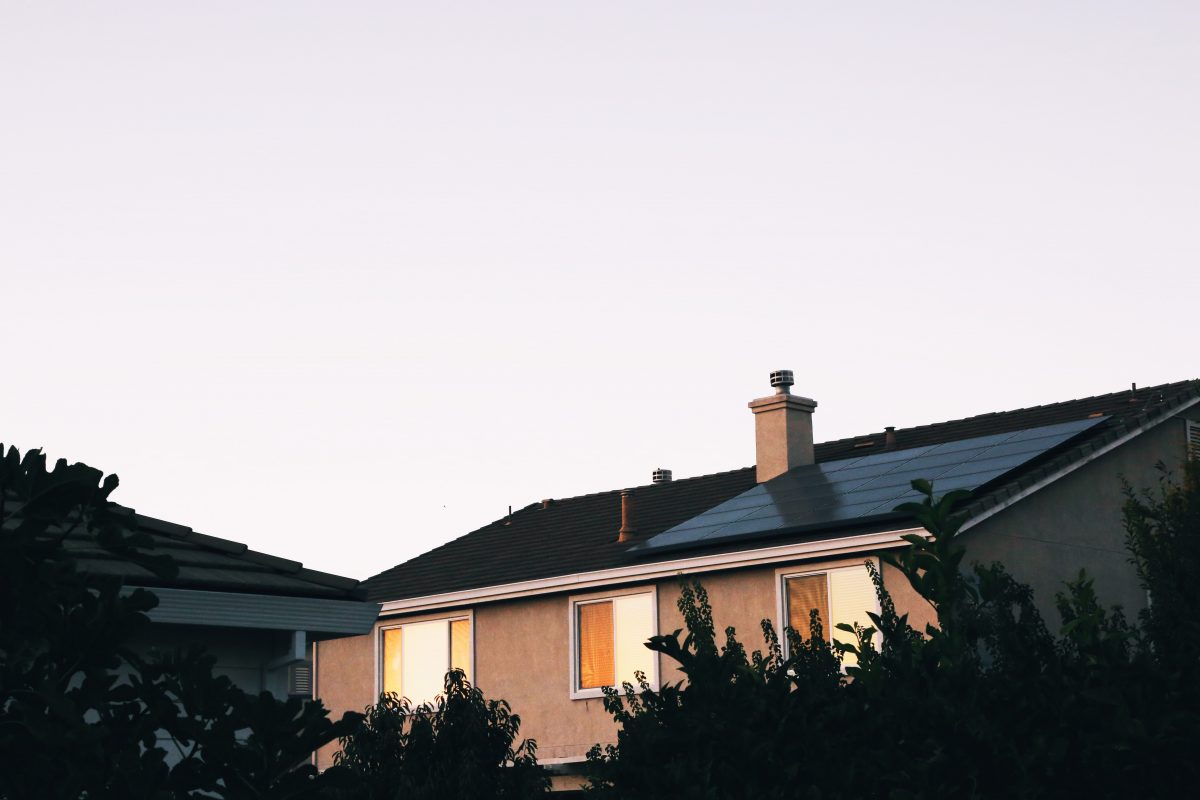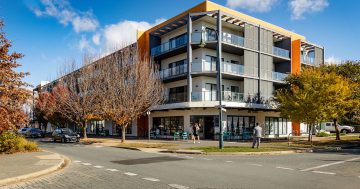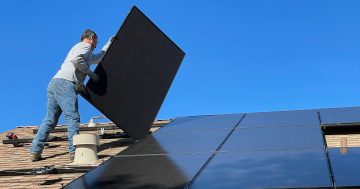
Co-authors Dr Lee White and Dr Bjorn Sturmberg (research leader in the Battery Storage and Grid Integration Program) say tenants have been largely excluded from the household sustainable energy transition. Photo: Giorgio Trovato.
A new study has revealed Australians are missing out on the benefits of the solar panel boom because property investors believe tenants won’t pay higher rent if they are installed.
Australian National University (ANU) researchers surveyed 931 property investors across the country and found several barriers holding land owners back from installing rooftop solar photovoltaic (PV) systems for their rental tenants.
Dr Lee V White and her colleague Dr. Bjorn Sturmberg are co-authors of the study and work within the school of regulation and global governance.
According to Dr White, the findings “run contrary to previous studies showing Australian tenants are willing to pay for more liveable homes and solar”.
Ms Danielle Gavin, a Department Manager with Civium Property Management, said based on her experience with tenants this was true. But property owners weren’t willing to put solar on land that was already an investment.
“However, if you have an owner living in the property and they put solar on for their own benefit but have to move out; the property is one, renting quickly, and two, achieving higher rents for it,” Ms Gavin said.

Research fellow of the Zero-Carbon Energy for the Asia-Pacific Grand Challenge, Dr Lee White. Photo: ANU.
Dr White said this lack of understanding among property investors, as well as renters, was due to the poor access of information that clearly showed the benefits.
“Electricity from solar systems will vary depending on system size, the direction it’s facing, the tilt on the roof, and other things that may be challenging for a renter to see from the ground,” Dr White said.
“Solar systems typically come with monitoring systems that can track their actual output over the course of a day; and homeowners who install solar systems benefit from this, in being able to time their electricity use and understand their savings.
“Making some of this visible in rental ads and property manager discussions could help with individual home choices.”
Ms Gavin agreed but said not everyone understood data or graphs.
The study recommended state and territory governments follow Queensland’s example in creating a publicly accessible data set that was regularly updated with the latest information on solar system performance.
This data set shows tenants in solar-installed rentals how much they gain in financial (dollar) terms, rather than more abstract rating systems such as energy efficiency stars.
The study also found the majority of property investors preferred to pay costs up front, rather than use interest-free loans or government subsidies.
Ms Gavin believed this finding reflected investors’ negativity towards paying overheads.
“I haven’t spoken to any owner regarding solar specifically, but with regards to other schemes such as insulation, they [investors] think: ‘it’s only going to cost me five or six grand, I’m just going to pay it outright and use it as a tax deduction.'”
She said rising costs were the most pressing issue ACT owners currently faced, and the best incentive the government could provide would be to lower land taxes.















